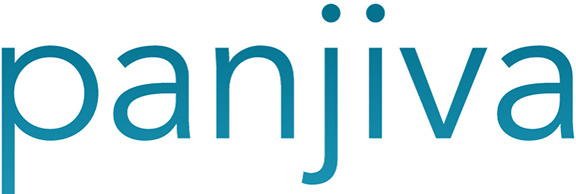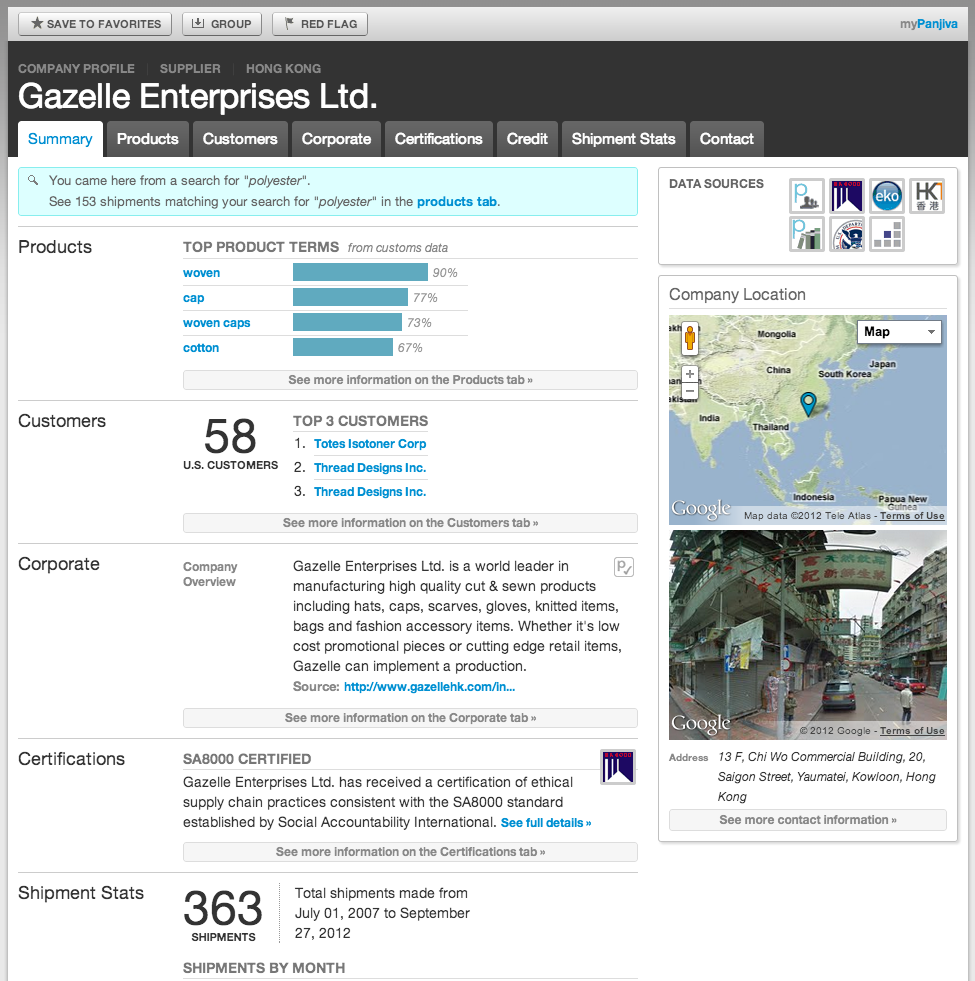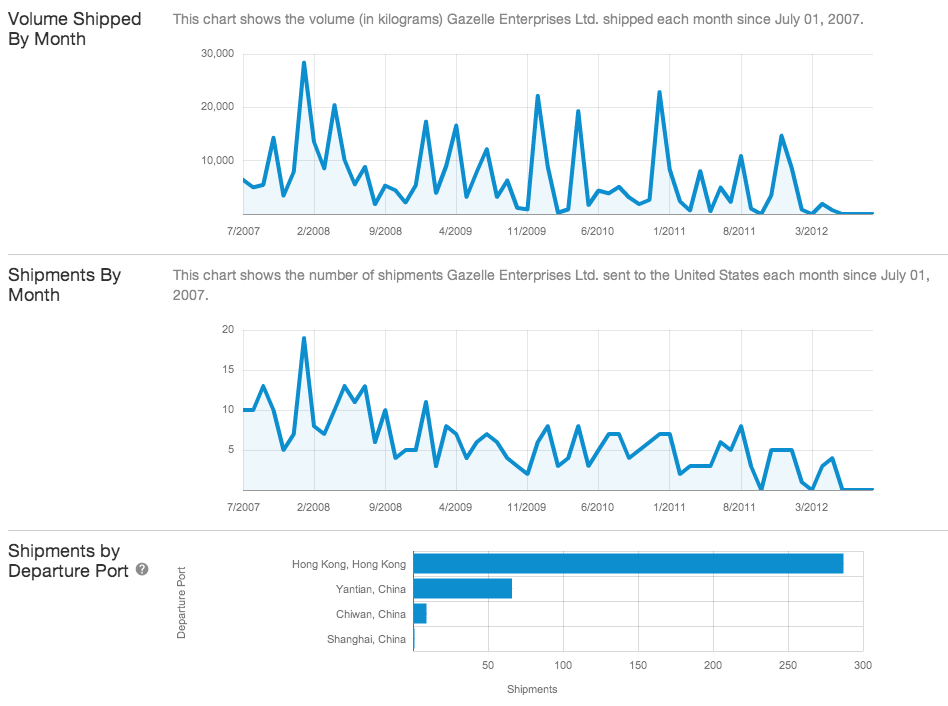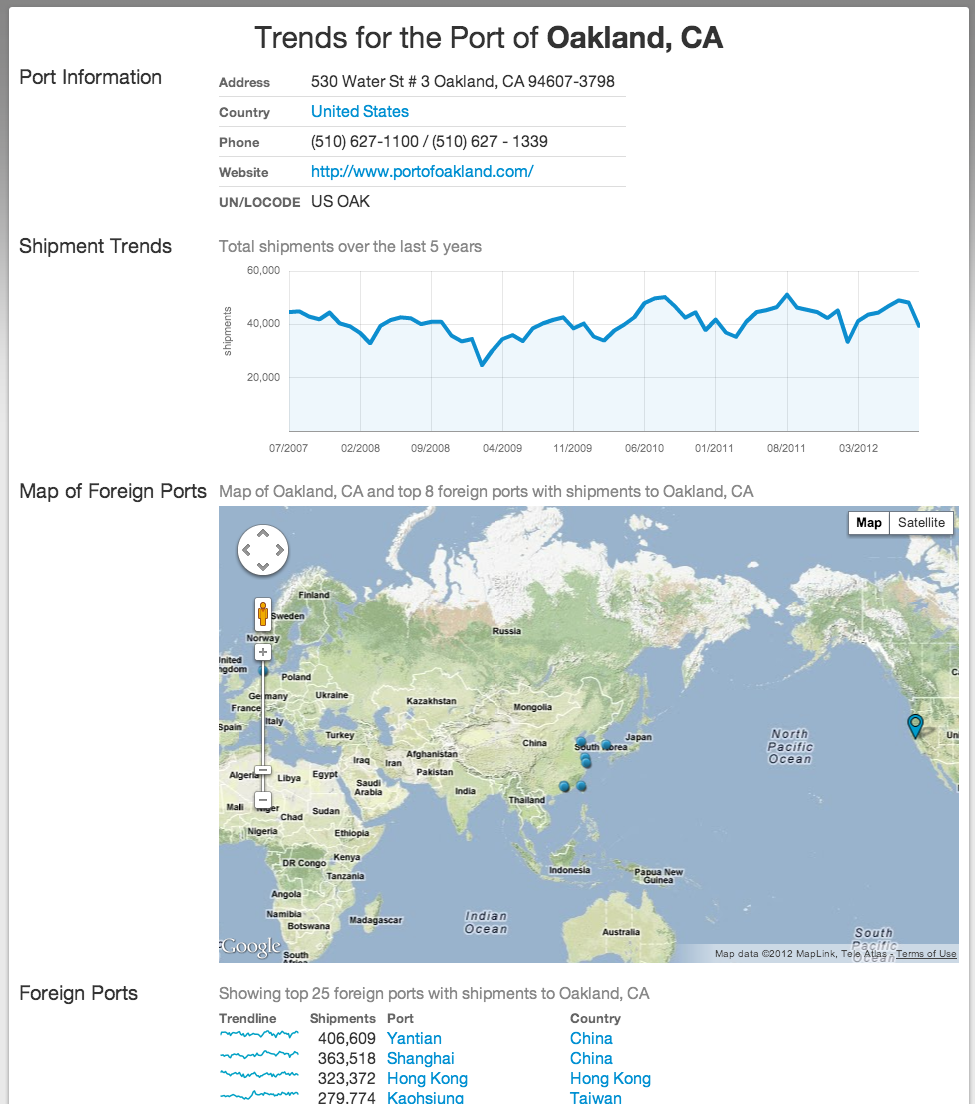Imagine Google Analytics but for world trade, with graphs showing data like shipping volume instead of site visitors. Combine that with LinkedIn-style profiles, but for manufacturers, and you get Panjiva. The six-year-old New York company is rolling out a new global search feature this week that takes the dozens of data sources it has been quietly accumulating about anyone shipping in bulk — port shipping volumes, credit ratings, environmental qualifications, etc. — and lets you easily answer key questions for your business.
Let’s say you want to start a new clothing line. You can now go onto Panjiva and search for materials you need, like polyester (here’s a sample profile of a fabric supply, Gazelle Enterprises Ltd. of Hong Kong). A top navigation bar lets you quickly grab key info like main products it ships, its customers, corporate background, industry and social accountability certifications, and shipment stats. While Panjiva’s basic subscription plan will get you access to most of this data, you can also pay for an international credit report.
All this data about Gazelle can tell you if they’re the right company for you to buy fabric from. On the plus side, they appear to make consistent deliveries to U.S. companies and have a long client list, which looks good. But they also show declining shipping volume over the years, as noted in a meta score assigned by Panjiva at the bottom of their profile. This means you should do more research to see if their business will still be able to supply you next year.
Beyond the new search-oriented interface for profiles, Panjiva has also added a bunch of new information to its already-extensive database. It has crawled around 7 million web pages across 400,000 company domains and other content sites, collecting 35 million images of the products all these companies sell and 8 million new contacts. This is on top of other sources, like the U.S. customs offices, Jigsaw’s business directory, and even port shipping tables from the Department of Homeland Security — which the company first had to get by asking for it to mail CD-ROMS. (In a mark of its progress moving the industry off of paper, disks, and the occasional Excel spreadsheet, Panjiva counts the department as one of its 3,700 paying clients today.)
Panjiva has also started to get the social network dynamics seen in sites like Yelp, Facebook and LinkedIn (or CrunchBase, for that matter), cofounders Josh Green and James Psota explained to me on a call last week. It automatically creates profiles for companies, populated by the data it finds on its own. But companies can then take over those profiles, confirm or dispute information about themselves, and provide additional context about themselves, their partners, and their certifications. This improves the value of the data without Panjiva itself having to do additional work.
And, the net effect is far more transparency about imports and exports than is available through most other official or third-party sources. Though there are lots of companies, such as ImportGenius and PIERS, that have been selling some of the same underlying data for years, Green says Panjiva has set its sights on a much larger target in the world of global trade, Alibaba. By combining all of this information from all of its sources, Panjiva is attempting to be the go-to place where buyers and suppliers of virtually any product can connect with each other.



